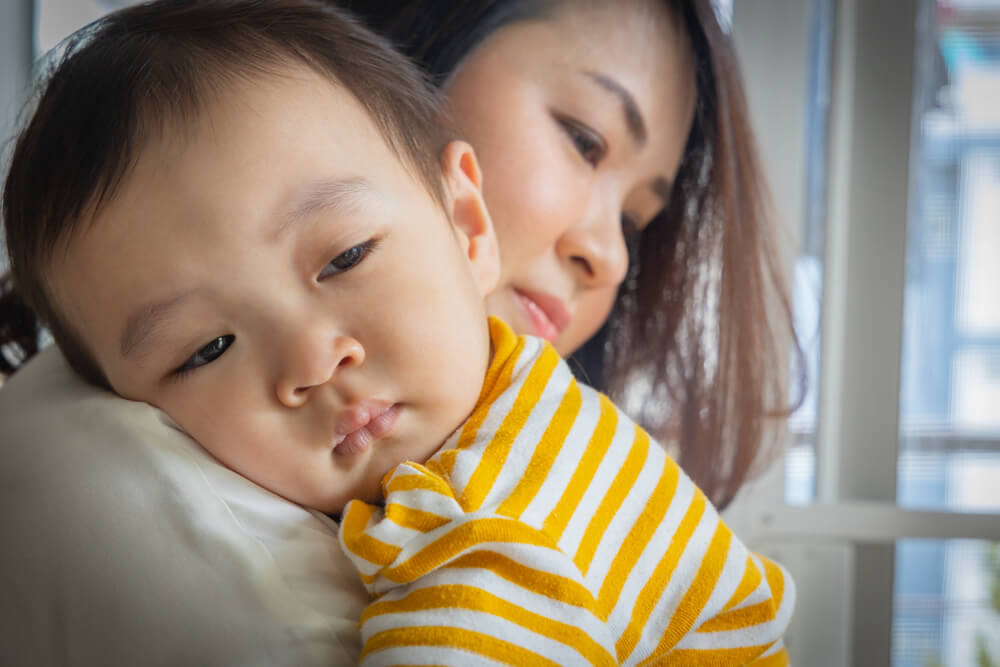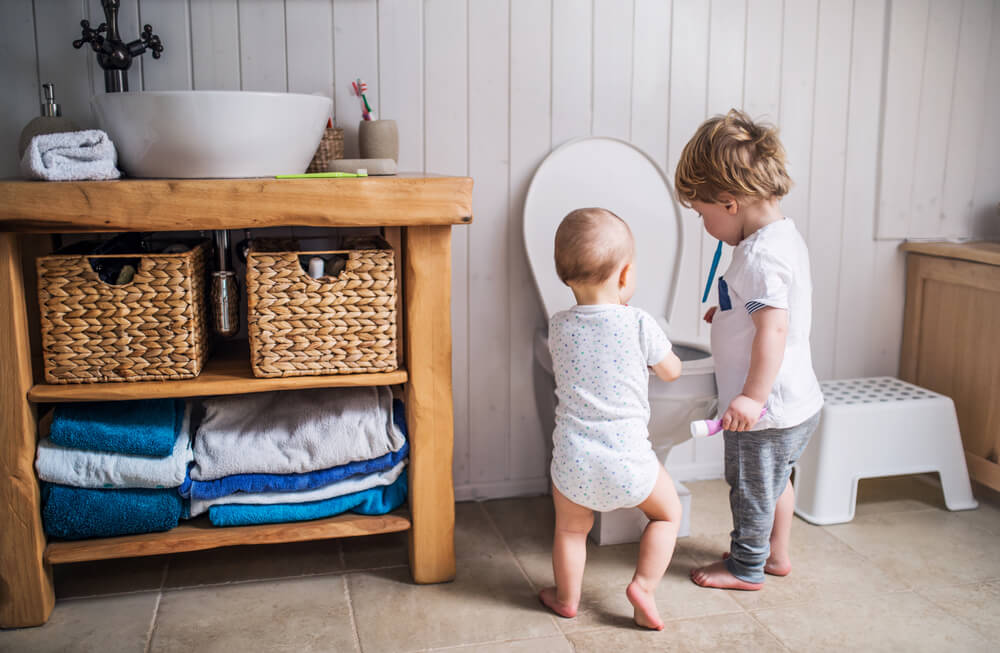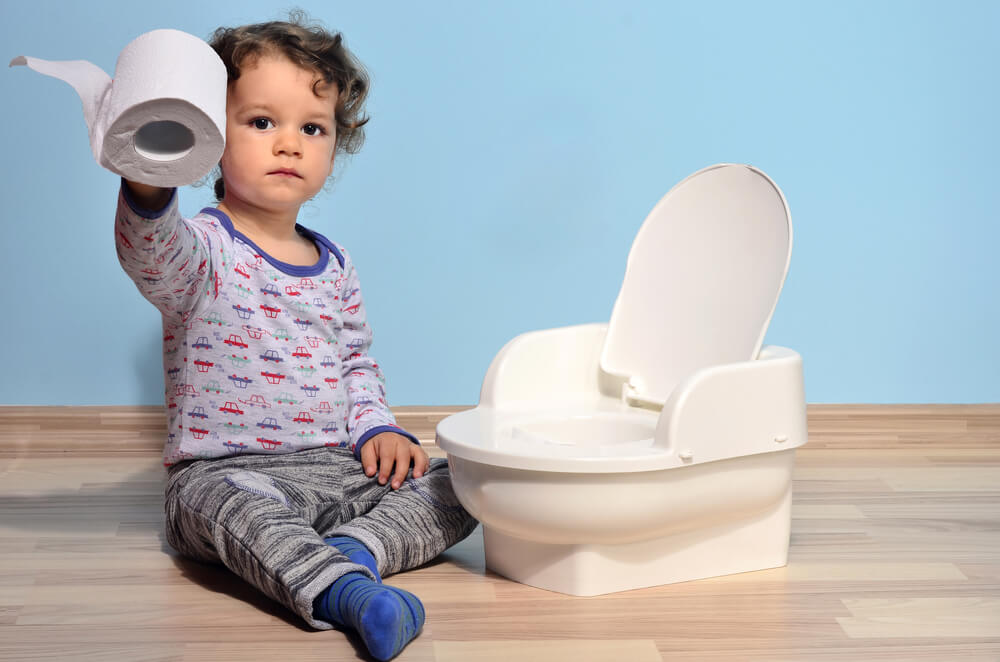Toddler diarrhea can be simply described as loose, watery bowel movements in young kids. The condition is usually a common symptom of illness in toddlers, with children younger than four years in the US usually having diarrhea at least once or twice a year.
Most often, treating diarrhea and the underlying condition won’t cause any complications, and the toddler will get a clean bill of health rather quickly. Still, in rare cases, severe diarrhea may lead to dehydration, resulting in the need for emergency care.
In this article, the experts at Children’s Medical Center of South Florida address the topic of diarrhea in kids, discuss the causes, and also talk about treatment.
What Causes Diarrhea in Toddlers?

Generally, several things may be able to trigger watery and loose bowel movements, and experts usually separate the causes into two different categories.
Acute Diarrhea Causes
- Bacterial and viral infections: In most cases, rotavirus and other infections, such as Salmonella, are the cause of toddler diarrhea.
- Giardia: A parasite that triggers diarrhea.
- Food poisoning: In the case of food poisoning, toddler diarrhea is caused by the germs and toxins in the food that was left out for too long. Fortunately, the symptoms of food poisoning will subside within 24 hours, and the problem can often be treated at home without requiring medical attention.
- Antibiotic diarrhea: Mild diarrhea in kids is considered a normal reaction to antibiotics. Still, if any severe symptoms occur, parents should call the pediatrician.
- Traveler’s diarrhea: Often caused by germs in drinks or food, and will most often occur after recent foreign travels.
- Other serious causes: Mostly, bacterial diarrhea in kids will resolve on its own. Still, there are a few that can cause serious bowel infections, like Shigella colitis.
Recurrent Diarrhea Causes
- Lactose intolerance: Many people can’t absorb the sugar in milk, and the gut bacteria will convert the milk into gas, resulting in passing a lot of gas, bloating, and loose stools.
- Cow’s milk allergy: This can lead to slimy and loose stools in young children, which may also be blood-streaked.
How to Treat Diarrhea in Children?
Fortunately, there are several ways parents can help their little ones find relief.
In the Case of Mild Diarrhea With No Vomiting
Mild cases will typically resolve on their own in a few days, and children won’t need to take electrolyte solutions or change their diet. The child may still be given breastmilk, cow’s milk, or formula. Still, if the child seems gassy or bloated after drinking these, parents should ask their pediatrician whether these beverages should be avoided.
In the Case of Mild Diarrhea With Vomiting
In these instances of toddler diarrhea, the children will usually have to stop their usual diet and should be given small amounts of electrolyte solutions until the vomiting stops. Once children get better, they can slowly continue with their usual diet.
Severe Cases of Diarrhea
In these cases, parents should contact their child’s pediatrician. Severe and frequent bowel movements with accompanying signs of dehydration may need to be addressed with more drastic diet changes, such as not giving the child solid food for a day or less and focusing mainly on fluids to replenish the lost water in the stools. Still, children should not be given beverages high in salt or sugar. In some cases, children may need to receive fluids intravenously in the emergency department.
Dehydration and Diarrhea
Children who have diarrhea due to viral infection will usually also vomit and have fevers. In these cases, the most important thing is to prevent the toddler from becoming severely dehydrated. If parents observe any apparent symptoms of dehydration, they should reach out for medical assistance. Also, they should call the pediatrician if they observe the following:
- Long-lasting fever (longer than one to two days)
- Vomiting that lasts longer than a day
- Bloody stools
- Green-looking vomit tinged with blood
- Yellowish eyes and skin (jaundice)
- Severe belly pain
- Child won’t drink or eat
- Abdominal swelling
Electrolyte Solutions
While they are helpful home remedies in moderate and severe diarrhea cases, most children with loose bowel movements won’t need these solutions.
These fluids are designed to replace the lost salts and water during diarrhea. While some parents may think that any kind of beverage will work, like soups, soft drinks, juices, boiled milk, and sports drinks, the truth is these fluids have the wrong amounts of salt and sugar, which may even make the problem worse.
Fortunately, these solutions are commercially available, both in the form of brand name and store brand options. Still, before their use, parents should consult with their child’s pharmacist or doctor to know which products are available and safe to use.
How to Treat Diarrhea: When Not to Eat and Change Diet?
Fasting isn’t a diarrhea treatment, but some children may actually benefit from not eating solid food if they are also vomiting. In these cases, offering small amounts of electrolyte solutions becomes even more essential to avoid dehydration. As the child recovers, parents can safely let them eat as little or as much of their usual diet as they please.
On the other hand, parents should avoid the BRAT (banana, rice, applesauce, toast) diet, which was used to be recommended in the past. The diet is no longer considered effective, as these foods are low in protein, fiber, and fat, lacking essential nutrients that help the recovery of the gastrointestinal tract. Some experts will also state that the BRAT diet can make toddler diarrhea worse.
Some will also recommend using probiotics to alleviate diarrhea. While they may have beneficial effects regarding diarrhea, the scientific community needs more evidence to establish how useful good bacteria are in these cases.
Antidiarrheal over-the-counter medicines aren’t recommended for children who are younger than two, but they may also be harmful for older children. Before opting for them, always reach out to your child’s pediatrician.
Reducing Diarrhea Risks

What causes diarrhea in toddlers? As mentioned, the most common causes are viral and bacterial infections, parasites, food allergies, medicine side effects, and sudden diet changes. With this in mind, parents can help prevent diarrhea in the following ways:
- Help the child practice good hygiene with frequent hand washing with soap and hand sanitizers.
- Limit your child’s exposure to other toddlers with diarrhea and vomiting.
- Avoid giving your child raw milk or contaminated foods.
- Limit the amount of sweetened drinks and juice your child consumes.
- Ensure your child is vaccinated against the rotavirus.
Learn More About Things You Can Do to Help
Diarrhea may develop in children for various reasons, and some of them can be difficult to avoid at all times. For the most part, the condition will subside within a day or two, and your bundle of joy will fully recover. Still, you should keep an eye on them to ensure they don’t get dehydrated. To learn more about the different ways you can help prevent toddler diarrhea and ease the associated discomfort, reach out to us anytime.


